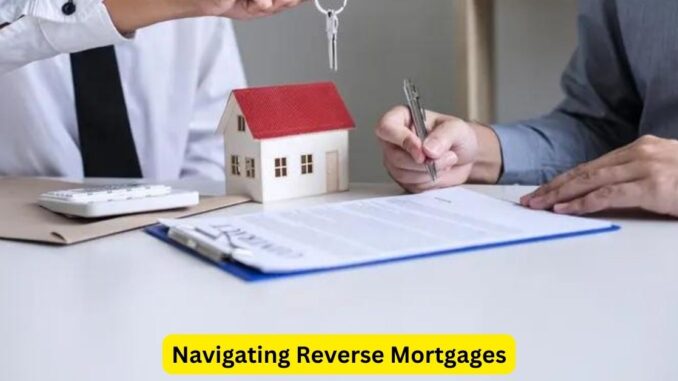
Reverse mortgages offer homeowners aged 62 and older an opportunity to convert a portion of their home equity into cash without selling their home. Understanding the intricacies of this financial tool is crucial before considering its implications.
How Reverse Mortgages Work:
- Eligibility: To qualify for a reverse mortgage, homeowners must be at least 62 years old and have significant equity in their home. The home must be their primary residence.
- Loan Types: There are three main types of reverse mortgages: Home Equity Conversion Mortgages (HECMs), proprietary reverse mortgages, and single-purpose reverse mortgages. HECMs are federally insured and widely available.
- Payment Options: Borrowers have choices in how they receive funds: as a lump sum, a line of credit, fixed monthly payments, or a combination of these. The amount available depends on factors like age, home value, and interest rates.
Benefits of Reverse Mortgages:
- Supplemental Income: For retirees with limited income, a reverse mortgage can provide additional cash flow, covering expenses or unexpected costs without monthly loan repayments.
- No Repayment Requirement: Repayment is typically deferred until the homeowner moves out, sells the home, or passes away. As long as they meet loan obligations (such as paying property taxes and insurance), they can remain in the home without repayment.
- Flexibility in Fund Usage: Borrowers can use the proceeds from a reverse mortgage as they see fit, whether it’s covering healthcare expenses, home renovations, or improving their quality of life.
Considerations and Cautions:
- Loan Costs: Reverse mortgages have upfront costs, including origination fees, closing costs, and mortgage insurance premiums, which can eat into the available funds.
- Impact on Heirs: Upon the homeowner’s passing, heirs inherit the home. They have the option to pay off the loan or sell the home to settle the debt. If the loan balance exceeds the home’s value, heirs aren’t responsible for the excess.
- Interest Accumulation: As interest accrues over time, the loan balance increases, potentially reducing the equity available to heirs.
- Financial Counseling: HUD mandates that borrowers seeking a HECM must undergo financial counseling. This ensures they understand the implications and obligations associated with a reverse mortgage.
Is a Reverse Mortgage Right for You?
For some, a reverse mortgage can provide financial flexibility and stability in retirement. However, it’s crucial to carefully consider individual financial circumstances, long-term plans, and consult with a financial advisor before committing. Understanding the risks and benefits empowers homeowners to make informed decisions regarding reverse mortgages.
Leave a Reply